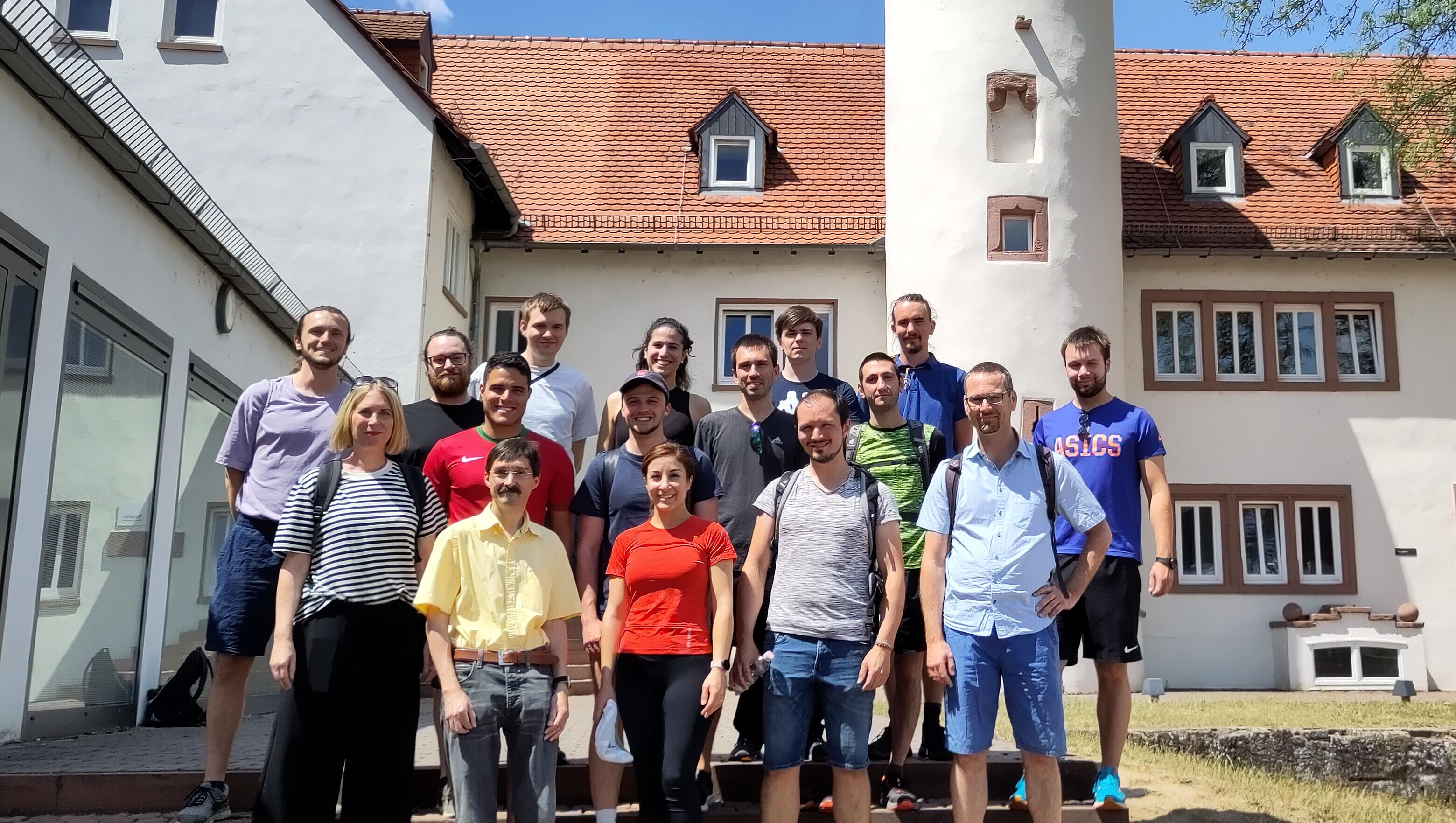M.Sc. Kirill Kuroptev

Stress testing of electric power systems and energy markets
+49 (0) 6151 16-21723
fax +49 (0) 6151 16-21712
S3|10 310
Landgraf-Georg-Str. 4
64283 Darmstadt
Research Interest
- Cyber-Physical Electrical Energy System
- Electrical Energy Market Coupling
- Stress Testing
- Statistical Methods
- Control Theory
- Game Theory
Research Project:
The interconnectedness of the electric power system makes it necessary to view it as a cyber-physical system that is not only exposed to physical threats, such as natural disasters but is also increasingly subject to threats from cyberspace. Through a directed attack on the energy system, the goal of destabilizing the energy supply could be pursued by, for example, affecting the coordination of actors in the system or manipulating the physical system components.
In order to investigate the damage potential of possible cyber threats, the research project is conducting investigations on stress tests that consider the electric power system as a nexus of physical, information technology, and economic systems. Particular attention will be paid to the various stress testing approaches already used in the field of financial regulation.
Open theses
Supervisor: Kirill Kuroptev
Earliest start: immediately
Type: Bachelor Thesis
This thesis deals with the critical area of frequency reserve mechanisms, which are essential for maintaining the stability of electricity grids. The objective is to present and partially simulate the activation of frequency restoration reserve providers in the European control reserve market. The activation function optimizes reserve providers' use to restore the electric grid's frequency in case of deviations.
The study includes the investigation of the frequency restoration reserve, where the technical requirements, the activation processes, and the participation of the market participants are elaborated.
Furthermore, the paper describes the formulation and constraints of the activation optimization function derived from the preceding technical and economic considerations. The resulting mathematical optimization problem is then implemented for a simplified example using programming languages such as Python, Julia, or Matlab.
To illustrate the identified activation optimization function, the thesis includes a numerical case study with different scenarios, such as limited cross-border capacity and increased volatility of control power demand. The results of this case study are analyzed to draw meaningful conclusions.
Supervisor: Kirill Kuroptev
Earliest start: immediately
Type: Bachelor Thesis
Disruptive Technologien wie das "Internet of Everything" und das "Metaverse" führen zu einer erhöhten Auslastung der Telekommunikationsknotenpunkte, die sich im Energieverbrauch niederschlägt. Ein relevanter Anteil der eingesetzten Energie wird dabei für die Kühlung der Server verwendet. Da Server häufig über eine interne Kühlung, z.B. durch Lüfter, verfügen, diese jedoch nicht ausreichend und im Detail schwer zu bestimmen ist, werden verschiedene externe Kühltechnologien eingesetzt, um eine Überhitzung der Server zu vermeiden. Es stellt sich daher die Frage, ob der Gesamtenergiebedarf von Central Offices durch eine intelligente Wahl der externen Kühltechnologien reduziert werden kann, da die interne Kühlung der Server weniger Energie benötigt und somit Energieeinsparungen erzielt werden können.
Ziel der Arbeit ist es, eine empirische Studie für die Ermittlung des Zusammenhangs zwischen verschiedenen Kühlstrategien sowie dem Raumtemperaturniveaus und dem Gesamtenergieverbrauch von Telekommunikationsknotenpunkten zu konzipieren und zu erproben. Dazu sollen zunächst die für den Gesamtenergieverbrauch relevanten Parameter mit Fokus auf die klimatechnischen Komponenten recherchiert werden. Basierend auf den Recherchen soll ein holistisches Simulationsmodell der Telekommunikationsknotenpunkten erstellt werden, anhand dessen es möglich sein soll den Effekt verschiedener Kühlungsstrategien auf den Gesamtenergieverbrauchs abzubilden. Des Weiteren soll eine empirische Studie zur Ermittlung der Effektstärken der relevanten Parameter der Komponenten konzipiert werden. Die Methodik der empirischen Studie soll anhand des implementierten Simulationsmodells erprobt werden.
Die Konzeption der Studie soll unter Betrachtung eines Teststandorts eines großen deutschen Telekommunikationsunternehmens durchgeführt werden.
Supervisor: Kirill Kuroptev
Earliest start: immediately
Type: Bachelor Thesis
This thesis deals with exploring the hazard of grid frequency deviation and instability by dynamic load altering attacks. These attacks describe an adversary manipulating load in the power grid such that the frequency deviates substantially and/or even an instability in the frequency arises. The thesis includes the reimplementation of an existing work[1] and enhancing it by a lag element and a saturation element to explore the system’s response and the system’s stability with realistic conditions. A potential method for this could be the application of the root locus-curve[2] to the linearized power grid system model. Hence, fundamental knowledge in control engineering is beneficial, as well as some first experiences with Matlab/Simulink. If desired, the necessary implementation can also be carried out in Python or Julia. The student will learn about the frequency control in power grids[3] and gain experience in the threat of dynamic load altering attacks as well as its potential to destabilize the power grid’s frequency. We support and recommend the possibility to split the thesis in a proseminar and bachelor thesis.
- [1]: S. Amini, H. Mohsenian-Rad and F. Pasqualetti, "Dynamic load altering attacks in smart grid," 2015 IEEE Power & Energy Society Innovative Smart Grid Technologies Conference (ISGT), Washington, DC, USA, 2015, pp. 1-5, doi: 10.1109/ISGT.2015.7131791.
- [2]: Tomislav B. Šekara, Milan R. Rapaić, “A revision of root locus method with applications”, Journal of Process Control, Volume 34, 2015, Pages 26-34, ISSN 0959-1524, https://doi.org/10.1016/j.jprocont.2015.07.007.
- [3]: Frequency containment reserve (FCR)
Short Bio
- Since 2022: PhD Student at EINS
- 2021 – 2022: Data Analyst at Suewag Energie AG
- 2019 – 2021: M.Sc. Industrial Engineering – specialising in Electrical Engineering and Information Technology at TU Darmstadt
- Field of Specialization: Econometrics, Energy Management
- 2015 – 2019: B.Sc. Industrial Engineering – specialising in Electrical Engineering and Information Technology at TU Darmstadt
- Field of Specialization: Automation System
Publications

[Conference]
Kirill Kuroptev; Florian Steinke :
Coordinated cyber attacks on smart grids considering software supply chains.
In: IEEE PES Innovative Smart Grid Technologies Conference Europe (ISGT-Europe), Grenoble, France, 2023

